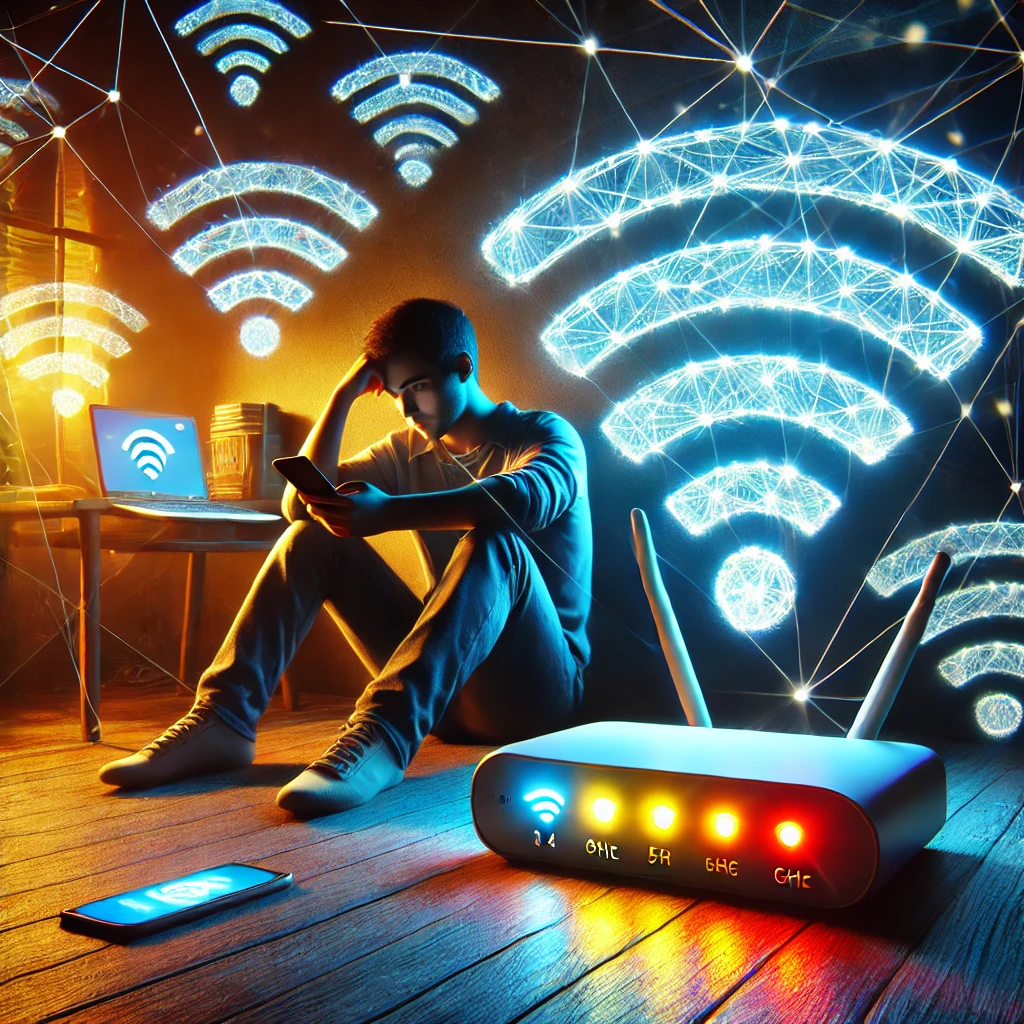Does WiFi Affect Your Mental Health and Well-Being? Discover the Truth

Introduction
In the digital age, WiFi is a basic necessity in almost every home and workplace. However, concerns have arisen about its potential effects on mental health and well-being. Can WiFi really harm your mind, or is it just a myth? In this article, we will explore the science behind this concern and provide tips for healthy technology use.
How WiFi Works and Its Impact on the Body
WiFi operates through radiofrequency waves in a non-ionizing spectrum, meaning it does not have enough energy to alter DNA or cause cellular damage. According to the World Health Organization (WHO), there is no conclusive evidence that WiFi exposure has adverse health effects.
Possible Indirect Effects of WiFi on Mental Health
While WiFi itself does not directly affect mental health, excessive use and dependence on connectivity can influence well-being in various ways:
- Affects Sleep Quality: Prolonged use of WiFi-connected devices, especially before bedtime, can disrupt melatonin production, affecting rest and mental health.
- Increases Stress and Anxiety: Constant connectivity can lead to anxiety, information overload, and digital dependence.
- Impacts Personal Relationships: Spending too much time online can reduce face-to-face interaction, affecting emotional connections with friends and family.
- Nocebo Effect: Some people believe they are sensitive to electromagnetic waves, which can lead to symptoms such as fatigue, headaches, and stress, even though there is no scientific basis for it.
Multiband WiFi Devices and Their Impact on Connectivity
Modern Wi-Fi routers such as the TP-Link AX3000 WiFi 6 Range Extender or the Netgear EAX15 are typically multi-band, meaning they operate on multiple frequencies such as 2.4GHz, 5GHz, and in some cases 6GHz. These devices allow for better traffic management and more efficient connectivity, reducing latency and improving user experience. However, with the proliferation of wireless networks, some users have expressed concern about potential overexposure to these signals. However, telecommunications safety standards ensure that the radiation emitted by these devices remains within the safety limits set by international bodies.
Additionally, some advanced routers feature technologies like WiFi 6 and WiFi 6E, which optimize signal distribution, reduce interference, and improve energy efficiency. This not only benefits connectivity but can also help reduce tech-related stress by minimizing connection issues and frustrations associated with slow or unstable networks.
Tips for Healthy WiFi and Technology Use
To minimize any potential negative effects of WiFi use, consider these strategies:
- Disconnect devices before bedtime to improve sleep quality.
- Set screen-free schedules, especially during meals and family gatherings.
- Practice digital disconnection through activities like meditation, exercise, or reading.
- Use night mode on your devices to reduce blue light emission.
Conclusion
There is no conclusive evidence that WiFi harms mental health or physical well-being. However, excessive use of connected devices can lead to stress, anxiety, and sleep disturbances. The most important thing is to maintain a balance in digital life and adopt healthy habits for overall well-being. Your mental health does not depend on WiFi, but on how you use it!
What do you think about this topic? Share your experience in the comments!




